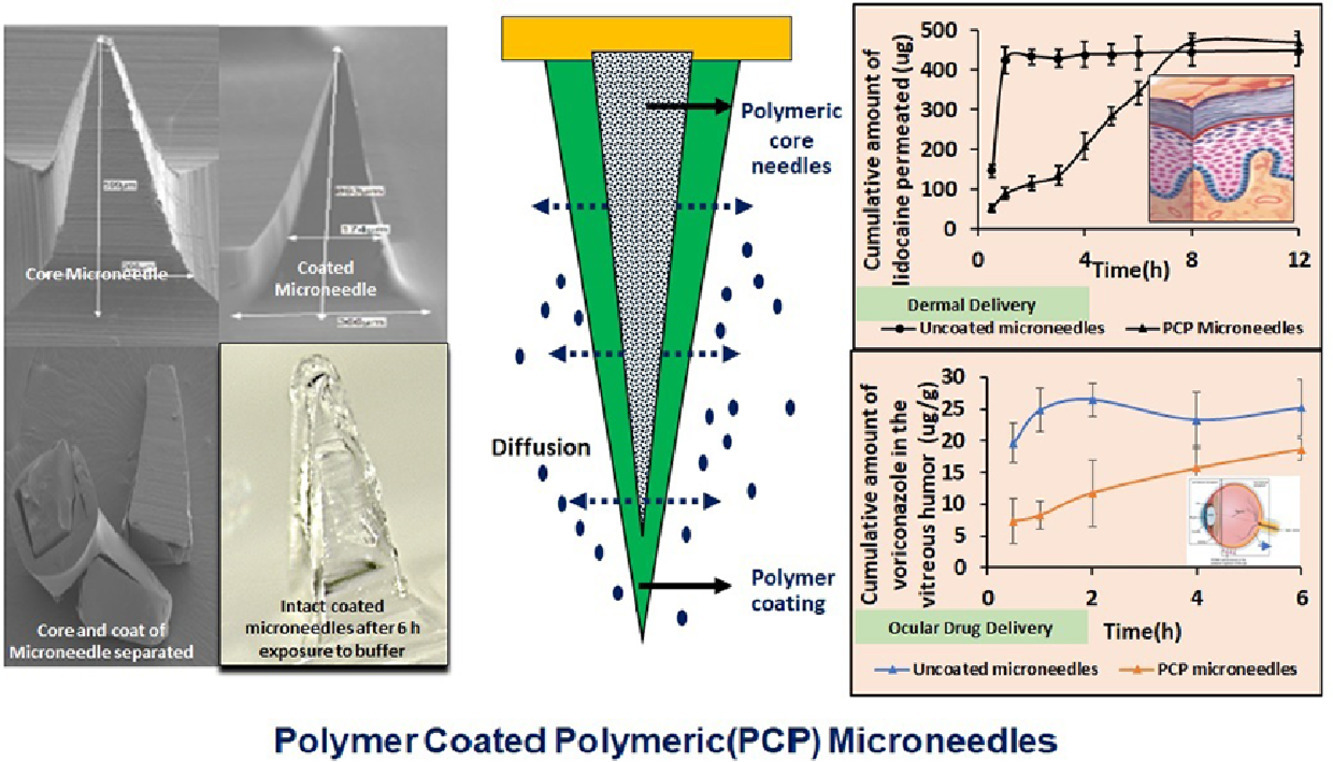Polymer Coated Polymeric (PCP) Microneedles for Controlled Delivery of Drugs (Dermal and Intravitreal)

Microneedles are used to deliver drugs topically across the skin and mucous membranes. Dissolvable microneedles are made using soluble polymers, which disintegrates in the tissue and release the entire payload instantaneously including the polymer construct. Often, a slow release of drug into the tissue is desirable to overcome the severity of side effects at the site of administration as well as systemic adverse effects. In addition, controlled release of active pharmaceutical ingredient (API) only (not the excipients) is safe and effective particularly when the drug delivery is intended to sensitive organs like the eye. In this project, the feasibility of fabricating polymer coated polymeric (PCP) microneedles to achieve a gradual release of only the active ingredient from the device was investigated. The potential application of such PCP microneedles in the dermal and intravitreal drug delivery was also explored using animal tissue models. The PCP microneedles were found to be intact even after prolonged contact with the release medium. The time at which 50% (T50%) of dextran (10K) was released in case of microneedles prepared using 20% of core polymer (PVP-K30) was about 15 min versus less than 5 min in the case of uncoated microneedles. Whereas when the core polymer concentration was increased to 50%, the T50% was increased to 90 min. The rate of release depended on the polymer molecular weight grade. The rate of drug release was not influenced by the total amount of concentration of dextran. The PCP microneedles of lidocaine hydrochloride could constantly release the drug for up to 9 hours in the skin tissue. Likewise, the PCP microneedles infused voriconazole, intravitreally for 6 hours.
Deeksha Jakka, Anusha V Matadh, Vijay Kumar Shankar, H.N Shivakumar, S. Narasimha Murthy,
Polymer Coated Polymeric (PCP) Microneedles for Controlled Delivery of Drugs (Dermal and Intravitreal),
Journal of Pharmaceutical Sciences,2022, ISSN 0022-3549,
https://doi.org/10.1016/j.xphs.2022.05.023.

